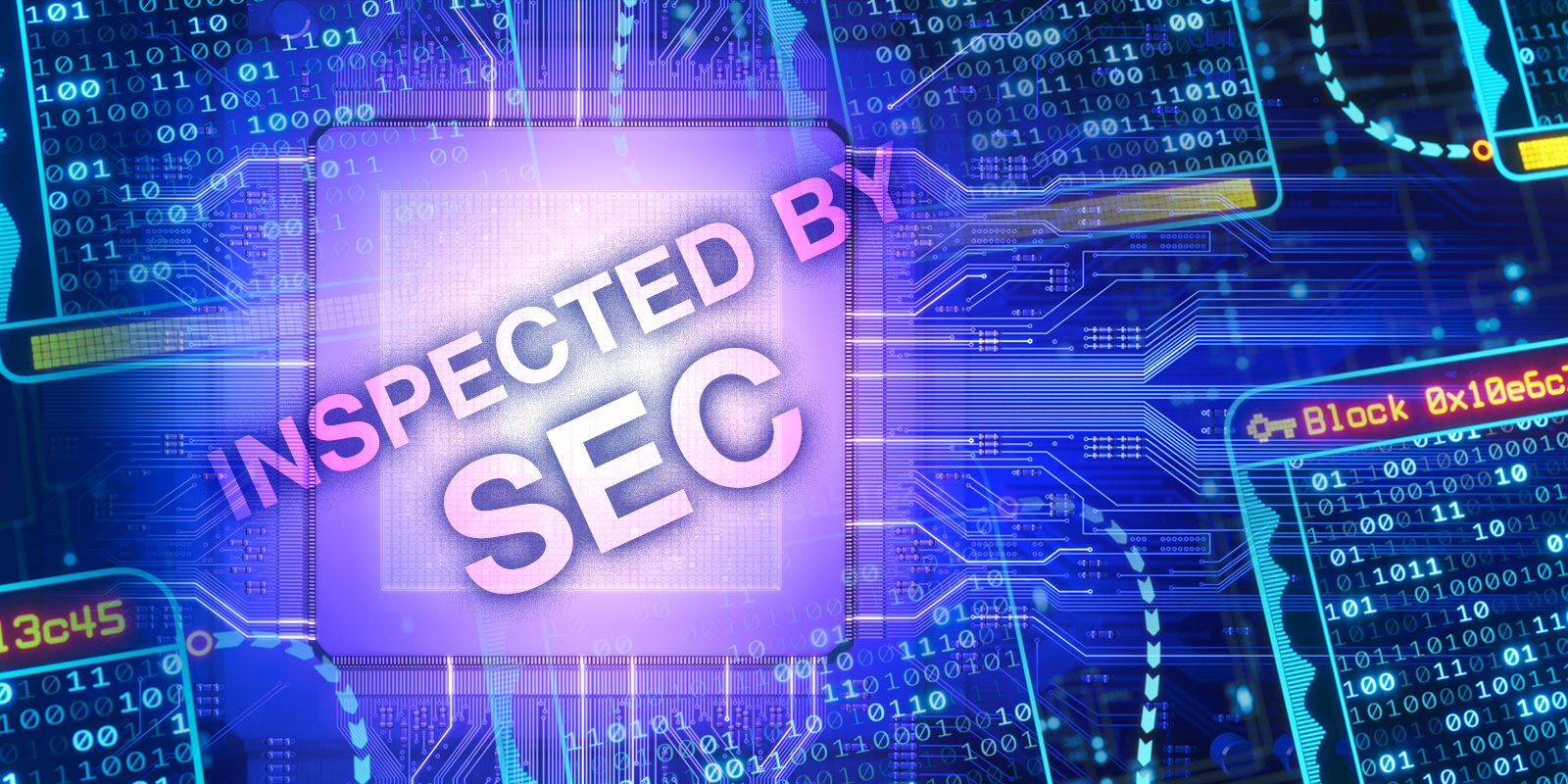
SEC Proposes to Broadly Expand the Definition of an "Exchange" and Amend Regulation ATS
In Short
The Situation: The U.S. Securities and Exchange Commission ("SEC" or "Commission") has proposed amendments to Rule 3b-16 under the Exchange Act that would dramatically expand the definition of an "exchange" and eliminate the exemption provided under Regulation ATS for systems that exclusively trade government securities. It also has proposed related changes to various filing and operational requirements for Alternative Trading Systems ("ATSs").
The Issue: By including systems using "communication protocols" and including systems that display and match non-firm indications relating to securities in the definition of an "exchange," the proposed amendments, if adopted, would require many more systems, not currently subject to registration, to either register as an exchange or register as a broker-dealer and comply with Regulation ATS, thereby materially increasing the scope of systems subject to agency oversight.
Looking Ahead: If the amendments are adopted, systems previously excluded from exchange registration because they did not meet the definition in Rule 3b-16 and/or were not required to register as broker-dealers pursuant to SEC Staff no-action letters, including many fintech platforms, may no longer be able to avoid registration in some capacity.
The SEC's Proposal
On January 26, 2022, the SEC released a rulemaking proposal that, among other things, would expand the definition of "exchange" under Rule 3b-16 of the Exchange Act. Under the current rule, which further defines some of the terms in the Exchange Act's definition of "exchange" in Section 3(a)(1) of the Act, an organization or group of persons will be considered to be or provide an exchange if it: "(1) Brings together the orders for securities of multiple buyers and sellers; and (2) Uses established, non-discretionary methods (whether by providing a trading facility or by setting rules) under which such orders interact with each other, and the buyers and sellers entering such orders agree to the terms of a trade." An entity or system that meets this definition must either register with the SEC as an exchange or register as a broker-dealer and comply with Regulation ATS. As the markets and the use of technology in them have changed significantly since the rule was first adopted in 1998, the SEC has proposed to amend this definition to encompass many of the types of platforms used today by market participants to facilitate trading in a variety of instruments.
While the current rule requires that, to be an exchange, a system must bring together "orders," the proposed amended rule would require only that the system bring together "trading interest," which would include both orders and non-firm indications of a willingness to buy or sell a security. Similarly, while the current rule provides that an exchange's "established, non-discretionary methods" can be established by either providing a trading facility or by setting rules, the proposed amendment would include "communication protocols" as a means for meeting this part of the definitional requirement. Consequently, conditional order systems, Request for Quote ("RFQ") systems, negotiated orders initiated via OMS/EMS scraping systems, and "stream axes" (IOI or firm, negotiated or auto-ex) could therefore all constitute an "exchange" under the amended rule. According to Commissioner Crenshaw, this would "remove a potential loophole" whereby system providers might label as non-firm trading interest orders that are actually firm in practice in order to avoid registration requirements or complying with Regulation ATS.
The proposal also would eliminate the current exemption provided under Regulation ATS for systems that exclusively trade government securities as defined under Section 3(a)(42) of the Exchange Act, in addition to those that trade repurchase and reverse repurchase agreements on government securities. ATSs trading government securities are not currently required to file public disclosures, nor are they subject to the operational transparency rules that apply to ATSs that trade NMS stocks, Regulation ATS's Fair Access Rule (Rule 301(b)(5)) or the requirements of Regulation SCI. The proposed amendments not only would make all such government securities ATSs comply with these various requirements, including filing a revised Form ATS-N, but also would, among other things, require all ATSs trading government securities or NMS stocks to make disclosures about the ATS's interaction with related markets, liquidity providers, and activities the ATS undertakes to surveil and monitor its market, as well as make a new type of filing regarding their fees. Finally, the proposal would broaden the application of the Fair Access Rule for all ATSs by aggregating, for purposes of the transaction volume thresholds for application of the rule, the average transaction volumes of all ATSs operated by a common broker-dealer or by affiliated broker-dealers. For those ATSs meeting those thresholds, the SEC has proposed minimum standards for providing Fair Access.
Impact: Regulatory Oversight, Prior Guidance, and Blockchain Implications
The proposed amendments would significantly broaden the definition of what constitutes an "exchange" for purposes of SEC registration and oversight. For instance, changing "orders" to "trading interest"—which includes not only orders but also "any non-firm indication of a willingness to buy or sell a security that identifies at least the security and either quantity, direction (buy or sell), or price"—essentially covers all indications of interest ("IOIs") submitted to any system, since the submission of a message that only identified the security and nothing else would be practically useless. (In fact, this proposed definition is even more broad than the definition of "actionable indication of interest" in Rule 600(b)(1) of Regulation NMS, which requires each of symbol, side, price equal to or better than the NBBO and a size at least equal to a round lot.) Consequently, any system to which IOIs are submitted could fall within the definition of "exchange" if it meets the other conditions of the proposed rule.
Expanding the means by which "established, non-discretionary methods" can be demonstrated to include "communication protocols" similarly will bring numerous previously excepted systems within the SEC's jurisdiction. In the SEC's view, "communication protocols … generally use non-firm trading interest as opposed to orders to prompt and guide buyers and sellers to communicate, negotiate, and agree to the terms of the trade. For example, if an entity makes available a chat feature, which requires certain information to be included in a chat message (e.g., price, quantity) and sets parameters and structure designed for participants to communicate about buying or selling securities, the system would have established communication protocols." The SEC will take a broad view of "communications protocols," which will include, but not be limited to: setting minimum criteria for what messages must contain; setting time periods under which buyers and sellers must respond to messages; restricting the number of persons a message can be sent to; limiting the types of securities about which buyers and sellers can communicate; setting minimums on the size of the trading interest to be negotiated; or organizing the presentation of trading interest, whether firm or non-firm, to participants. Even if those communication protocol systems do not match counterparty trading interest, buyers and sellers using them can be brought together to interact and agree upon the terms of the trade. (This latter condition—agreeing to the terms of a trade—must still be met for a system to be considered an "exchange.")
Other proposed changes to the rule, however, could operate to bring systems that do not match counterparties or enable them to agree to trade terms on the system within the "exchange" definition. In this regard, the proposed amendments would change the word "uses" established non-discretionary methods with "makes available" such methods. The SEC believes that this change is needed to capture Communication Protocol Systems within the rule because such systems take a more passive role in providing to their participants the means and protocols to interact, negotiate, and come to an agreement. It also believes the term "makes available" will make clear that, in the event that a party other than entity/group performing exchange functions performs any exchange function, the function performed by that party would still be captured for purposes of determining whether Rule 3b-16 applies to the entity/group. This essentially means that if an entity/group arranges with a third party to provide a trading facility or communications protocols, the third party's activities will be considered to be part of the group's activities for purposes of determining exchange status. Thus, there is an increased likelihood that a collection of entities providing disparate services connected in some way, even tenuously, to an eventual securities transaction could be considered part of a group constituting an "exchange."
Perhaps most significantly, the inclusion of "communications protocol systems" within the definition of "exchange" may also bring platforms facilitating blockchain and digital asset transactions within the regulatory ambit of the SEC. If the system using a communications protocol "makes available" (such as by routing to) a platform through which parties can agree to the terms of a trade, this arguably could constitute an "exchange" under the amended rule. Pursuant to this expansive new definition, providing information concerning AMM contracts or participating as a liquidity provider with respect to a particular AMM pool may constitute a communication protocol subject to registration and reporting obligations.
Because Bitcoin does not appear to be considered a security, this expansive proposal likely does not interfere with the current Bitcoin ecosystem. But any attempt to regulate communication protocols that interact with Bitcoin could elicit legal challenges on many bases. These include challenges grounded in administrative law, as well as ones potentially invoking the associational and expressional freedoms of the First Amendment.
Finally, the proposed rulemaking—particularly the "makes available" change—also may impact the validity of previously granted SEC no-action letters, including those relied upon by systems that operate in conjunction with registered broker-dealers and platforms. To the extent a system (collectively) falls under the new proposed definition of "exchange," any prior relief excepting the system from having to register as an exchange or a broker-dealer may no longer apply. This could require matching systems, and potentially even some bulletin board systems, relying on existing no-action letters to seek updated guidance with respect to their potential registration obligations.
Public Reaction and Short Comment Period
Broadly speaking, the proposed amendments would appear to bring under the SEC's exchange/ATS registration regime almost any electronic system that involves communications relating to any interest to ultimately enter into a trade. As such, the proposal is likely to face resistance from those who view them as jurisdictional overreach by the SEC. There has already been much criticism of the proposal in the press. Likewise, if enacted as proposed, the federal judiciary will almost certainly be tasked with fielding a litany of legal challenges. Given the Supreme Court's increasing proclivity toward agency restraint and deference to the clear mandates of Congress, courts may be hesitant to permit the Commission to stretch the statutory limits of its power too far beyond the bounds of the Exchange Act.
Finally, despite the complexity of the proposal—the version on the SEC's website is more than 650 pages long and contains more than 220 separate requests for comment on a variety of issues—the Commission has provided a short 30-day period for public comment on the proposed amendments. This could be particularly burdensome for those market participants who also are interested in other significant SEC rule proposals that have already been published or have been announced in the agency's regulatory agenda and are likely to be proposed in the near future. While the short comment period led to a public spat between Commissioner Peirce and Chair Gensler at the open meeting at which the rulemaking was considered, Chair Gensler noted that the 30-day period would start upon publication in the Federal Register, which he said currently has a publication backlog ranging between six to eight weeks. Consequently, he suggested interested persons should start the comment process now, so that they could have a de facto comment period of closer to two months or more.
Four Key Takeaways
- The SEC's proposed amendments to Exchange Act Rule 3b-16 would ultimately lower the threshold of what constitutes an exchange and significantly increase the scope of systems subject to agency oversight, through registration as an exchange or through registering as a broker-dealer and complying with Regulation ATS.
- The inclusion of "communications protocol systems" within the definition of "exchange" may bring platforms facilitating digital asset transactions within the regulatory ambit of the SEC, thereby subjecting them to new registration and reporting obligations.
- Matching and trading systems relying on prior no-action letters may need to seek updated guidance with respect to their registration obligations, since the final rule may supersede or otherwise render moot prior agency guidance.
- Because this proposal is so broad, and dramatically expands the Exchange Act's definition of "exchange," the proposal could face robust political and legal opposition from those who perceive these amendments as jurisdictional overreach by the SEC.






